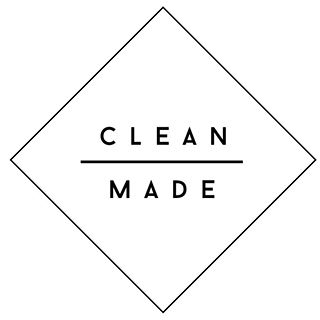4 Steps to a Non-Toxic Kitchen | Guest Feature: Three Little Plums
You want, no you need a ‘detox’; you want to eat healthier, feel better and decrease the toxins you are exposed to. Your first step, you might think, is to embark on a clean food regime- an organic, colorful, superfood filled diet. But, hold on there. In order to have a truly clean meal you need to take a look at where your meal is prepared: the kitchen. Does your kitchen support you in your non-toxic living journey? If it doesn’t , your kitchen and the items you use to prepare your meals, could essentially be contaminating your healthy food and exposing you to harmful chemicals. This is why detoxing your kitchen is just as important as detoxing your diet.
The good news is that achieving a non-toxic, clean kitchen is actually pretty easy and attainable with a couple of easy swaps.
1. Cookware: There really is no sense in cooking the healthiest food in the world on toxic pots and pans. Most popular non-stick pans are filled with very toxic fluorinated chemicals (like the infamous cancer causing Teflon that has now been phased out but replaced with unknown, untested, new technologies and chemicals) that will migrate into your healthy organic meals when exposed to high heat.
The switch? Trade your non stick pans for cast iron, glass and/or stainless steel. Insider tip: with a little practice both cast iron and stainless steel can be stick-free too.
2. Plastic: Do you store your leftovers in plastic? Drink from plastic cups? Reheat food in plastic containers? Order in constantly? Buy food in plastic containers? If so, you are exposing yourself to endocrine disrupting chemicals - chemicals that imitate estrogen, and other hormones, and create an imbalance that can lead to cancers and birth defects, immune system suppression, developmental problems in children, and even asthma and obesity.
All plastics have been found to contain estrogenic activity- while some plastics are more likely to leach chemicals (especially when exposed to heat), the safest bet is to avoid daily use of plastic when you can- for yourself and for the planet.
The switch? Glass for storing and reheating foods and Bees Wrap, a reusable cloth made from beeswax and tree resin, in lieu of saran wrap. Buy fresh ingredients and food in bulk (and carry your own glass jars or bags) instead of purchasing food stored in plastic and cook at home as much as possible. Insider tip: We will all order in at some point- try to choose restaurants that provide compostable single use packaging or - at a minimum- ask the restaurant not to include plastic cutlery with your delivery and never reheat your food in plastic containers.
3. Water: Most people expect their home water supply to be relatively safe for drinking and cooking. Unfortunately, every recent study published on the topic has shown that Americans are drinking known harmful chemicals in their everyday drinking water supply and that the government (both state and federal) is falling short of enforcing The Safe Drinking Water Act (SDWA), and is slow at updating our deteriorating public water systems. The National Resource Defense Council published a study on nationwide water violations, and found that every single state's water supply had water violations (click here for more on what is in our water supply )
The essence of a non-toxic life and kitchen is having access to clean water. For many, this means buying a water filtration system. The type of filtration system you will need will depend on what is in your water, which is why it is a good idea to test your water to make sure you know what is in it that you want to remove. There are countertop units, full under-counter systems and whole-house filters available depending on your needs and budget.
4. Antimicrobials
It is common to find: antimicrobial sponges, towels, cutting boards, soaps, hand sanitizers and - of course- surface cleaners in many kitchens. It kind of makes sense that you would want to make sure your kitchen is free of bacteria and germs that could make you sick. However, it is important to keep in mind that antimicrobial products usually use chemicals like triclosan, a known endocrine disruptor. Triclosan, and similar chemicals, alter the levels of thyroid hormones and reproductive hormones (estrogen and testosterone) potentially resulting in increase risk of infertility, (decreasing levels of testosterone and sperm production) early puberty and other hormone related problems. Antimicrobial products can also lead to antibacterial resistance. Additionally, the FDA has stated that “ manufacturers have not demonstrate (that these) ingredients are both safe for long-term daily use and more effective than plain soap and water in preventing illness and the spread of certain infections."
Our world today is grossly overusing antimicrobial chemicals and this overuse is proving to be more dangerous - ultimately- than the bacteria they are designed to kill.
The Switch? Go back to basics. A bamboo cutting board, a plain sponge, plenty of soap and water or vinegar for surface cleaning and washing your hands regularly with plain soap and water. Insider Tip: Making your own safe disinfecting cleaner is as easy as mixing water and white vinegar.
Originally published September 2018
Aida Garcia-Toledo
Aida Garcia-Toledo is the founder of Three Little Plums (formerly Non-Toxic Munchkin), and an environmental toxin expert who educates on low tox living for the whole family. Three Little Plums has become a trusted destination for those wanting to make the transition to a healthier and less chemically dependent life, offering the newest research, tips, product reviews and - always- support and encouragement.
Aida works directly with families in the LA area, companies throughout the US and countless parents worldwide through her blog, social media and consulting company.
“It is not a diet. It is not a detox. It is a new way of life.”
You can connect with Aida online at:







